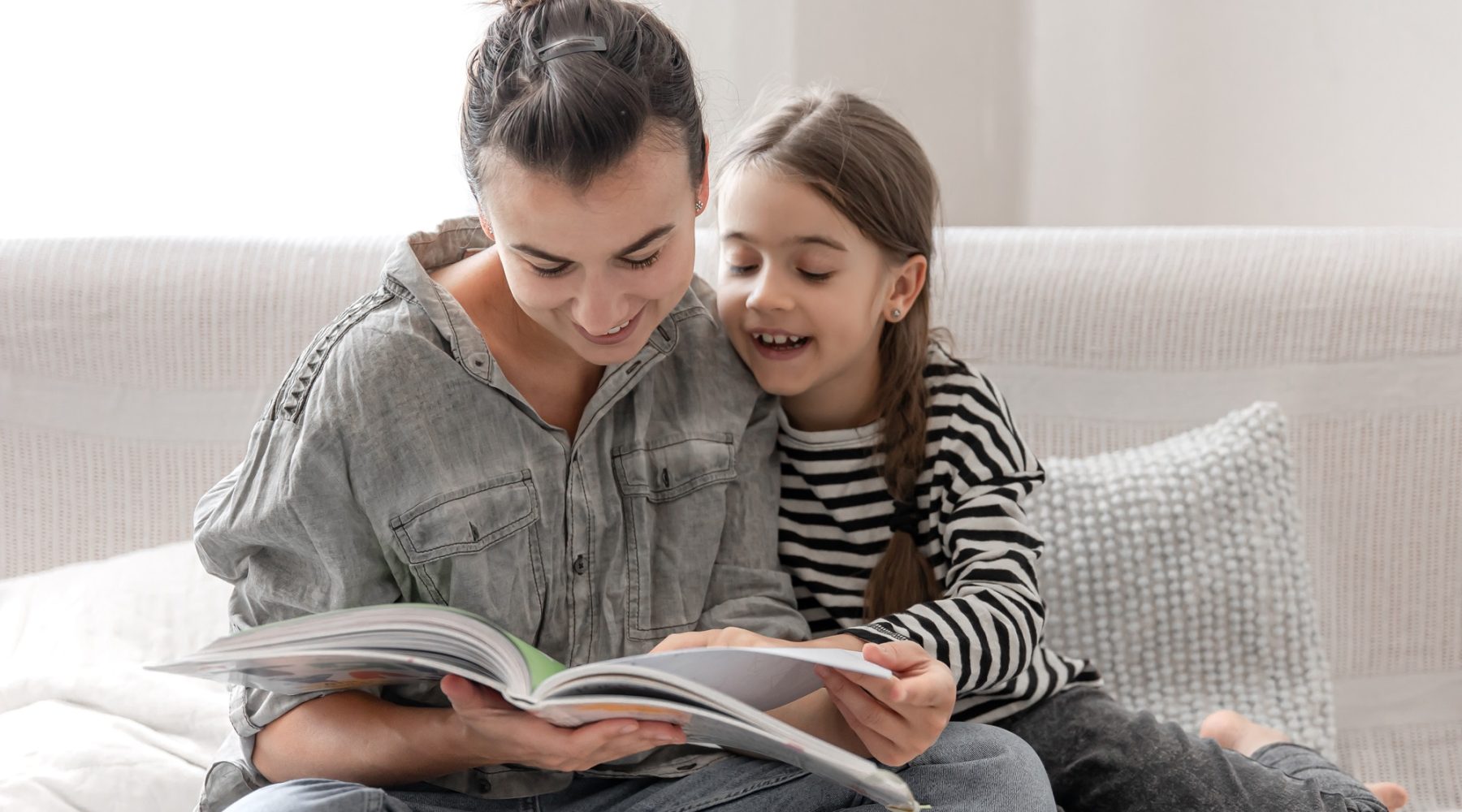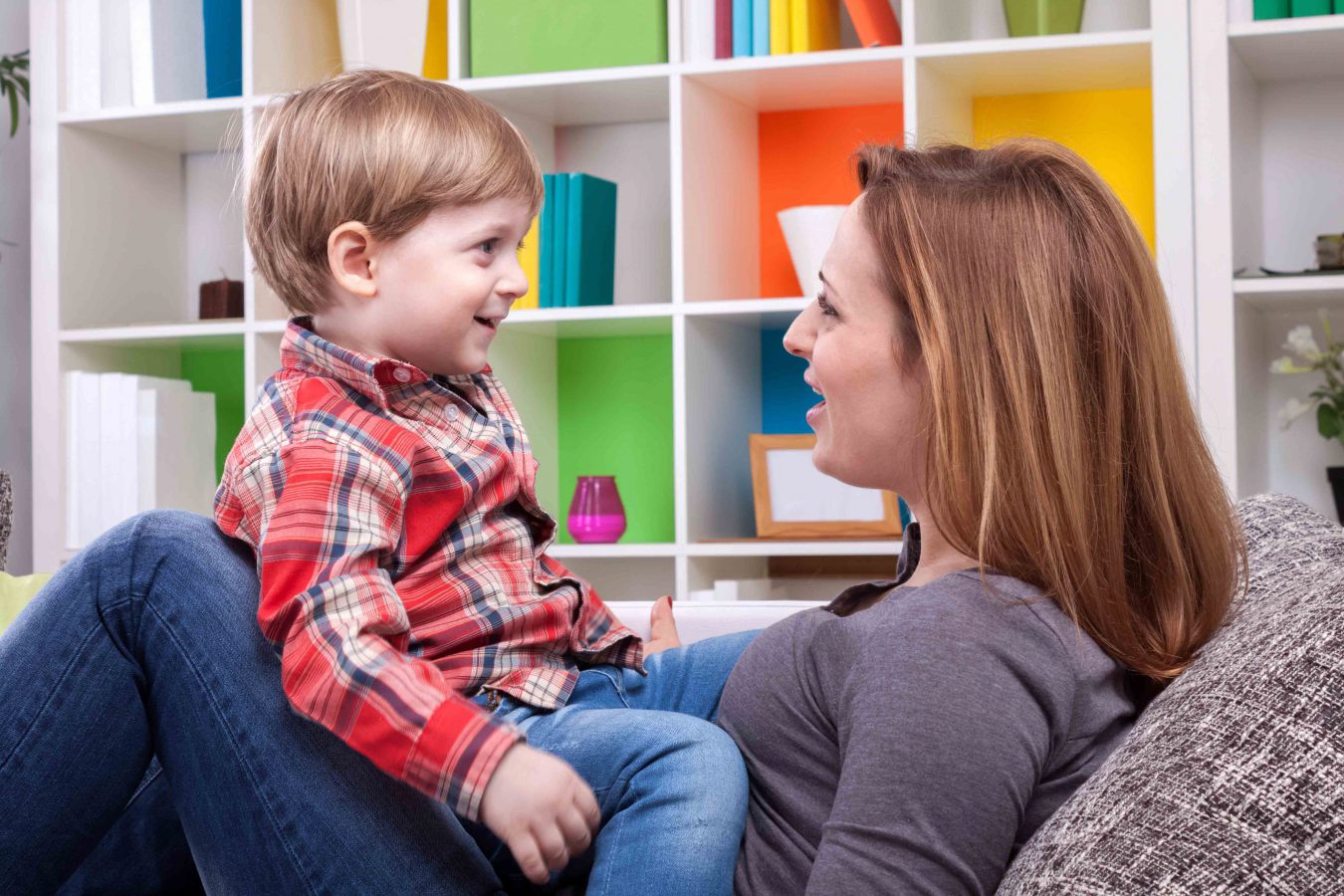
You can help your child develop a rich vocabulary, opening up a world of learning and development, writes Diane Bourke. She offers ideas, from choosing the right picture books to word games.
‘It is said that the effect of eating too much lettuce is soporific. I have never felt sleepy after eating lettuces; but then I am not a rabbit. They certainly had a very soporific effect on the Flopsy Bunnies!’
And so, begins Beatrice Potter’s book ‘The Tale of the Flopsy Bunnies.’
Beatrix Potter often uses sophisticated words sagaciously in her books, and generally, because of the context, the meaning rapidly becomes apparent. In these lines ‘soporific’ can be nothing else but sleepy.
Sophisticated words abound in her work: Squirrel Nutkin was ‘excessively impertinent in his manners’ while in ‘The Tales of Peter Rabbit’ a friendly sparrow flew to Peter ‘in great excitement and implored him to exert himself.’
In this article I have used several sophisticated words. Can you spot them and decide what the synonym or less-sophisticated alternatives might be?
According to Vanderbilt University’s Molly F Collins, sophisticated vocabulary means ‘words that are high level, communicate subtleties in detail and are less common in everyday parlance.’ Sophisticated words (sometimes referred to as rare words) lie outside the 8500 most frequently used words in the English languages.
Collins, who has been studying vocabulary acquisition for years, has found evidence of the benefits of teaching sophisticated vocabulary to young children. She maintains that using such words not only exposes children to unfamiliar words and concepts, but it also primes them to value words and communicates to them that words are worthy of their curiosity.
Avoid the temptation to 'dumb down' language
A rich vocabulary gives children the ability to say what they mean. By having several words at their disposal for describing, for example, an event or an emotion, children can be explicit when sharing their ideas and opinions, communicating in a more engaging way.
A rich vocabulary also bolsters children’s ability to think more logically and comprehend what they are reading. Furthermore, a wide vocabulary will increase children’s confidence and students who possess confidence in learning usually succeed.
In a recent book ‘What Are Pre-schoolers Thinking: Insights from Early Learners’ Misunderstandings’, Collins and her colleagues argue that preschool aged children are more cognitively proficient than they are often given credit for. Parents need to keep this in mind and avoid over-simplification. Exposing children to richer terminology helps them become more assured in everyday word usage.
Inopportunely, the opposite frequently occurs. Adults often use uncomplicated rather than more complex words when talking to young children. Reasons vary from beliefs that young children cannot understand sophisticated vocabulary and/or that they have inadequate language skills. In such cases sophisticated vocabulary learning is often thwarted and opportunities to nurture children’s curiosity about words go unrealised.
I encourage adults to be sedulously word-conscious, accepting that vocabulary is highly receptive to early adult intervention and avoiding any temptation to ‘dumb down’ language when speaking with children.
The highest rate of vocabulary expansion occurs during the preschool years and represents a crucial time for intervention. Children’s skills and vocabulary intake thrive when adult input is rich and responsive. Adults should continue this pattern throughout the school years.
Remember, being word-conscious means sharing significant conversations, promoting incidental learning, and enhancing word consciousness in children through frequent and deliberate modelling of sophisticated vocabulary. Adding substantial breadth to children’s vocabularies, should indeed be a source of pride. Goethe’s powerful words spring to mind: ‘The limits of my language are the limits of my universe.’
Ideas to expose young children to sophisticated language
Below are some of the ways adults can expose young children to sophisticated language. Family favourites will emerge over time.
Picture Storybook Reading is many people’s number one favourite activity, simple yet successful. However, you must be zealous, selecting the appropriate book to achieve the desired outcome. Think of Beatrix Potter’s rich words exposing children and adults alike to the beauty and power of language. Relish too the added benefit of sharing the warmth and intimacy of enjoying stories together.
The following are wonderful stories that sneak sophisticated vocabulary into the text in ingenious ways:
The Dictionary of Difficult Words by Jane Solomon includes more than four hundred perplexing words. What is a bumbershoot? Or a Moonbow? And what does it mean when someone absquatulates?
Like this post? Please share using the buttons on this page.
In The Word Collector by Peter H Reynolds, Jerome discovers the magic of words all around him – short and sweet words, two-syllable treats, multi-syllable words that sound like songs and words that connect, transform, and empower.
Take Away the A by Michael Escoffier turns the alphabet book upside down and the result is a playful romp from A to Z.
Then there are the picture books by John Burningham such as “Mr Gumpy’s Outing.” The children squabble, the sheep bleat, the calf tramples, and the pig mucks about.
The Amelia Bedelia books provide enormous fun. From dressing the chicken to dusting the furniture, Amelia Bedelia does exactly what Mr. and Mrs. Rogers tell her, yet somehow things never turn out quite right.
The Fancy Nancy series by Jane O’Connor really hits the mark when it comes to sophisticated vocabulary. Nancy is a young girl who loves everything fancy including the use of fancy words! Nancy would never say great when she could say stupendous. If this appeals, she even has a whole book of beloved words, Fancy Nancy’s Favourite Fancy Words: From Accessories to Zany
Play Word Games. Word Games are a fantastic way to sneak in some extra vocabulary practice. Games like Scrabble, Bananagrams, Crossword, Fridge Magnet Games, Upwords and Boggle can all help to expand word knowledge.
Conversations using sophisticated words Mealtime provides an opportunity to develop an awareness of common versus sophisticated words. Checking for synonyms provides a clear and obvious link between the two. Synonyms for eat include gorge, nibble, swallow, devour, cram, slurp, gulp, chomp, ingest, consume, wolf (down), munch, chew, gobble dine, and graze. Even having to forego eating etiquette on such learning occasions may well be seen as a price worth paying. If the consensus is that no synonym exists, why not invent one or more! Such activities will cultivate a fascination with words.
Nature walks, time in the garden, visits to the zoo, museum or art gallery all provide similar opportunities.
Regarding vocabulary learning in early childhood, experts Susan Neuman and Tanya Wright state that the frequency of exposure in a variety of meaningful contexts over an extended period of time enhances word learning.
In most cases children must interact with words five to seven times before such words are admitted to long term memory. Drawing a picture of the word, acting it out or using it in a sentence will help. Keeping track of novel words discovered also helps, such as by placing them in a jar or on a wall chart. I have aways written new words discovered in the book I am reading inside the cover, not in library books, of course. As years go by it is fun to go back and find what was once strange to me.
Over the years there have been numerous words that I have enjoyed using with my daughters and later grandsons. Perhaps some are familiar. These include akimbo, befuddled, cantankerous, catawampus, dilemma, gibberish, incredulous, kerfuffle, mollycoddle, nonplussed, plangent, pernickety, quirky, rumpus, scrofulous, tumultuous, vivacious, wonky, and zonked.
Be ahead of the game and check out Collins Dictionary, which has recently announced their top ten words of 2022. Permacrisis headed the list, but I prefer splooting, the act of lying flat on the stomach with the legs stretched out.
As you can see learning ways to become a word conscious parent and growing and improving children’s language skills is very feasible and certainly worthwhile. Make a commitment and start today. You will not regret it.
About Diane
Diane Bourke is a Project Manager for Independent Schools Victoria. She was Head of Junior School, Campbell House, at The Geelong College for 16 years, and Head of Junior School, Morris Hall, Melbourne Girls Grammar for 15 years.
Stay up to date with our newsletter here

